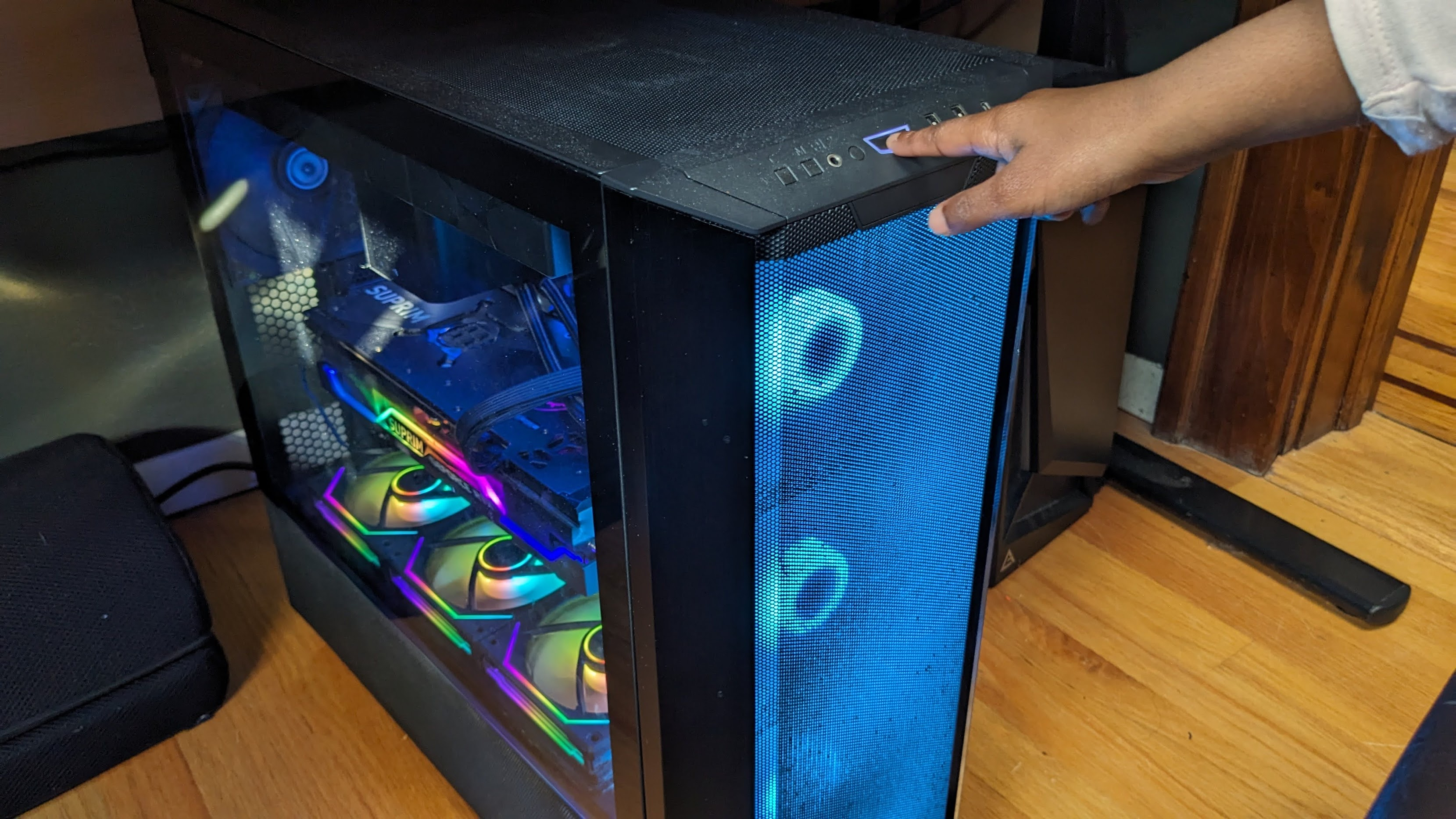President Trump's 25% tariff on aluminum sparks concerns over rising PC enclosure and GPU costs
Get ready to pay more for PC cases and GPUs

President Donald Trump's recent introduction of a 25% tariff on aluminum imports has raised concerns within the PC hardware industry, particularly regarding potential price increases for graphics cards and desktop cases. As per PCMag, industry insiders are alarmed by the possible ramifications of these tariffs on manufacturers and consumers.
Aluminum is a fundamental material in constructing PC cases and is also utilized in manufacturing various GPU components. The newly imposed tariffs are expected to increase production costs for these items, leading to higher retail prices. This development is particularly concerning for consumers seeking affordable options in an already inflation-sensitive market.
Reports of the aluminum tariff's impact on PC hardware first surfaced on Reddit, where user "Neoescape" warned that the additional duties were affecting GPU imports. "We recently imported several data center GPUs and got blindsided by a huge bill due to this additional 25% aluminum-related tariff," the user wrote. However, the moderators quickly deleted the post.
Kelt Reeves, CEO of custom PC maker Falcon Northwest, confirmed to PCMag that the company has already felt the impact of the new tariffs. "Yes, we've already been affected heavily. We thought that tariff was on raw aluminum and steel, not finished PC cases," Reeves explained. However, the policy also extends to aluminum derivative products, including PC components, further increasing costs for manufacturers and consumers.
Similarly, PC case manufacturer SilverStone Technology has been hit with the 25% aluminum tariff on top of the existing 20% tariff on Chinese imports. The company stated that since many of its cases are made primarily from steel and aluminum, these tariffs have significantly impacted costs. Likewise, InWin, another PC case vendor, reported that while it maintains prices using its existing stock, price adjustments may become necessary as inventory runs low.
A few days ago, Asus announced plans to shift production from China to other countries to avoid anticipated U.S. tariffs. This move may lead to increased product prices due to the costs associated with setting up new manufacturing facilities.
According to U.S. Customs and Border Protection, the aluminum tariff is determined by the value of the aluminum content in an import. However, unless suppliers specify the exact aluminum content in products like graphics cards—which is often difficult to obtain—customs brokerage services like UPS and FedEx default to applying the tariff to the entire shipment value, leading to potentially higher costs for buyers.
Get Tom's Hardware's best news and in-depth reviews, straight to your inbox.
The tariffs are expected to result in higher retail prices for GPUs and desktop cases, components that heavily rely on aluminum. This development is particularly concerning for consumers planning to build or upgrade their PCs, as it could increase overall costs. The situation also highlights the broader implications of trade policies on the technology sector and consumer expenses.

Kunal Khullar is a contributing writer at Tom’s Hardware. He is a long time technology journalist and reviewer specializing in PC components and peripherals, and welcomes any and every question around building a PC.
-
Neilbob Surely, no company would ever do anything that could possibly increase GPU costs; they would take the small hit to their margins in order to keep prices at the reasonable and affordable level to which we have become accustomed, because what could be more important than the positive regard of their customers!Reply
They have nothing but concern for the unwashed mas- *cough* consumers, right?
RIGHT? -
Makaveli This is why I completed my AM5 upgrade last month. Don't need to buy anything until UDNA Gpu is out and that maybe 2 years i'm good.Reply -
punkncat I would expect we will just see an expansion of the use of plastics in the cases on the lower end of the cost spectrum.Reply
GPU pricing has never returned to the "pre-mining" day pricing. The card manufacturers got that taste of pillage and haven't corrected yet, IMO. I cannot see the super small amount of AL being used in them become a larger factor than the greed we already are experiencing. -
Notton Reply
USA has minimal bauxite mining.alrighty_then said:I'll pay more but prefer the products move to the US.
Even if USA did go large scale, the USA isn't sitting on massive deposits of bauxite to begin with.
USA also hasn't had an alumina refinery since... the 80's or 90's, so there is a 30 to 40yr gap in skilled labor for an alumina and aluminum refinery.
The refining process is very energy intensive, so it's not as simple as plonking down the refinery either. It'll need to be hooked up to an energy grid designed for the load. -
Syntaximus ^ This.Reply
You cannot just flip a switch and say "we're doing things here now."
Infrastructure and logistics are important, but get omitted when you shoot first and ask questions later... -
SyCoREAPER Dont do politics on here no matter how relevant...Reply
It always derails and the threads locked. -
stonecarver So on a side note also affecting gamers and beer drinkers the cans them there drinks come it. That's going to be a cash machine.Reply -
punkncat ReplySyntaximus said:^ This.
You cannot just flip a switch and say "we're doing things here now."
Infrastructure and logistics are important, but get omitted when you shoot first and ask questions later...
Well, actually, that is how all these things that WERE happening in the USA ended up elsewhere. Someone decided it was better for the shareholders to have cheap labor do it, flipped a switch, closed a refinery, fired off a bunch of people, and plopped it down in some other country.
People have to realize that after this initial pain, we are going to have good blue collar jobs and pay that can support a family return to the United States. There will be other choices than fast food, retail, and service industry. This is going to end up being VERY good for our country if people have the fortitude to let it work. -
USAFRet Reply
In hindsight, it looks like it was "flipping a switch".punkncat said:Well, actually, that is how all these things that WERE happening in the USA ended up elsewhere. Someone decided it was better for the shareholders to have cheap labor do it, flipped a switch, closed a refinery, fired off a bunch of people, and plopped it down in some other country.
People have to realize that after this initial pain, we are going to have good blue collar jobs and pay that can support a family return to the United States. There will be other choices than fast food, retail, and service industry. This is going to end up being VERY good for our country if people have the fortitude to let it work.
In reality, it took years to move offshore.